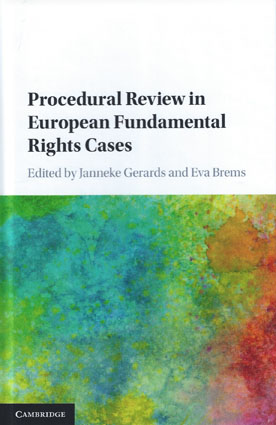
Traditionally, courts adjudicate fundamental rights cases by applying substantive tests of reasonableness or proportionality.
Increasingly, however, European courts are also expressly taking account of the quality of the procedure that has led up to a fundamental rights interference. Yet this procedural review is far from uncontroversial. There still is a lack of clarity as to what 'procedural review' really means, what its potential for judicial decision-making is, how it relates and should relate to substantive review, and what its limitations are.
Featuring contributions from experts in the field, this book is the first in-depth study into procedural review, considering the theoretical and conceptual issues at play, as well as the applicability of procedural review in different legal systems. It will therefore be of great importance to scholars and practitioners interested in fundamental rights adjudication in Europe, judicial reasoning and procedural justice.